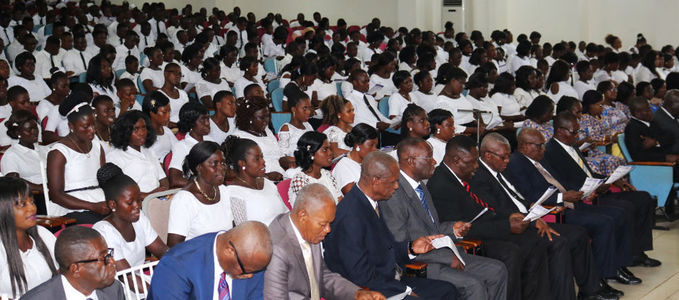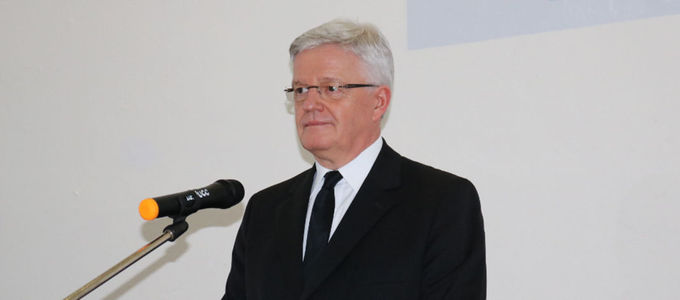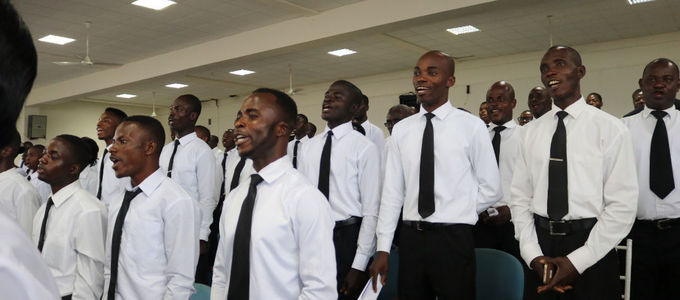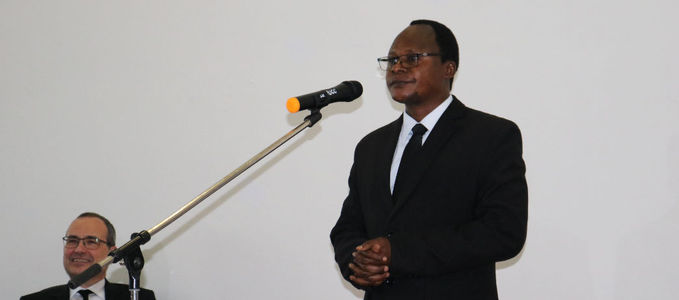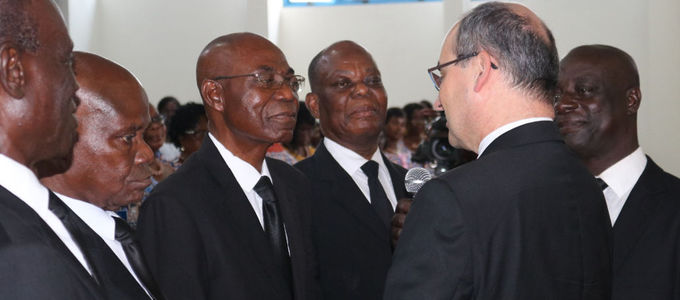
Jesus had been arrested and brought before the Council. Peter was waiting outside in the courtyard. A girl recognised Him. The record states that his speech had betrayed him. What speech do we use?
“Our language should testify of our spiritual wealth,” Chief Apostle Jean-Luc Schneider encouraged the congregation in Cape Coast in Ghana. His sermon there on 27 January 2019 was based on Luke 6: 45: “A good man out of the good treasure of his heart brings forth good; and an evil man out of the evil treasure of his heart brings forth evil. For out of the abundance of the heart his mouth speaks.”
A well-known statement, often used proverbially, and yet often overheard. For the church today it means that spiritual wealth also has to be mirrored in what we say, the Chief Apostle said. “At the rebirth of water and Spirit, God laid divine life into us. If we allow this life to grow within us, we will become richer and richer in Christ. This spiritual wealth will then be reflected in our words.” And then he listed some of these spiritual treasures—very concrete and to go.
The knowledge of Christ
Who exactly was this Jesus Christ? The Chief Apostle’s reply: “Through the witness of the Holy Spirit we know that Jesus Christ is the Son of God, that He conquered hell and death, and that He rose from the dead in order to take His own unto Himself.” This knowledge of Jesus Christ as the Son of God inspires praise within us and trust in God, even in the greatest of afflictions. “Remember Paul and Silas. After a severe beating they were thrown into prison and still sang their praises to God despite their wounds and chains” (see Acts 16: 23−24).
The fear of God
“We are aware of God’s help and thank Him for it,” the Chief Apostle continued. The best biblical example is the testimony of one of the ten lepers, the Samaritan: “And one of them, when he saw that he was healed, returned, and with a loud voice glorified God, and fell down on his face at His feet, giving Him thanks. And he was a Samaritan” (Luke 17: 15–16). Filled with holy awe towards God, we take His word seriously, the Chief Apostle stated. Instead of thinking that it applies to our neighbour, we ask like the disciples did: “Lord, is it I?” (Matthew 26: 22).
The pledge to future happiness
We are talking about our eternal inheritance, the Chief Apostle continued. “God has made us His heirs, and we are doing everything we can to obtain this inheritance. This priority is reflected in our prayers.” Particularly in distressing situations believers should ask God for strength so that they can remain faithful. And in conversations with our brothers and sisters we should make sure that our concerns about organisational aspects in the congregation do not completely overshadow the saving activity of God, he added on a serious note.
The promise of the imminent return of Jesus
“The prospect to soon be with Jesus gives us the strength to persevere. Let us encourage each other in the process.” Chief Apostle Schneider reminded the congregation of Hebrews 10: 37, where it says: “For yet a little while, and He who is coming will come and will not tarry.” It is the task of the believers to always include the Lord’s return in their future plans.
Love for our neighbour
Our speech ultimately proves itself in the subject of Christian love. The Chief Apostle reminded the congregation that God’s love has been poured out into our hearts (Romans 5: 5). “This love helps us to see those who have done evil not as enemies, but as prisoners of the evil one. Instead of responding to evil with evil, let us pray for their salvation by asking God to liberate them from evil.”
Back to Peter and the scene in the courtyard. “Can people recognise in the way we express ourselves that we are disciples of Christ?” Spiritual wealth is reflected in our speech.









